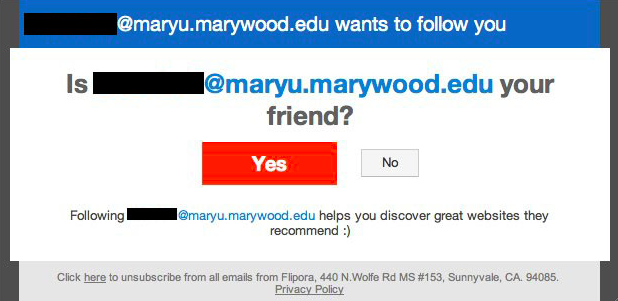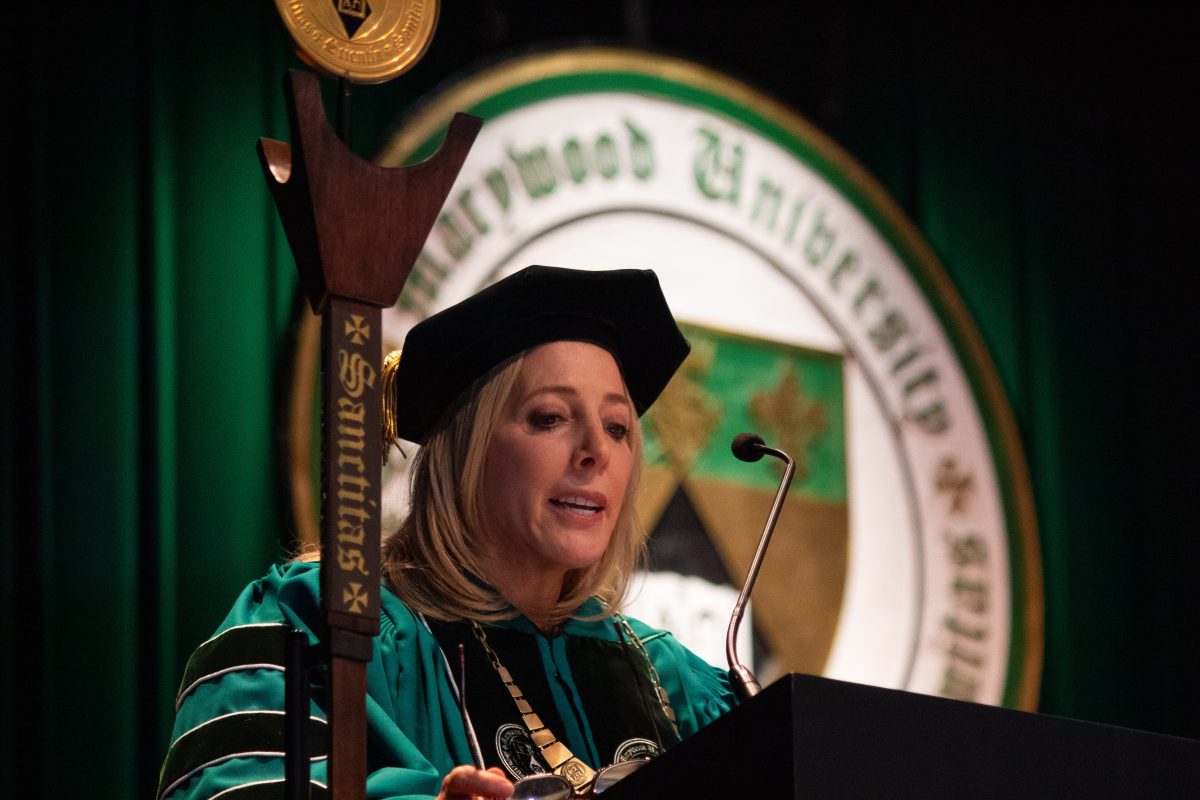In recent months, many faculty and students may have noticed an increase in spam email messages, which suggest that a Marywood professor, staff member, or student wants to “follow you.” The emails use real Marywood emails and ask the recipient to follow them, which results in a virus being inflicted the recipient’s computer.
“I think [the hackers] are harvesting emails from the [Marywood] web page because our emails are on [there],” said Anthony Spinillo, chief information officer, who explained that it is easy for these hackers to take these emails and make it look like they are from a professor or student just by changing who the email is from.
He explained that hackers are constantly changing their tactics in sending spam emails so the server cannot always block them.
According to John Porter, director of operations, the way the IT staff stops spam emails is through education and telling people not to click on links, forward suspicious emails to your friends, or give personal information out in an email or phone call.
“No agency, no institution, no college, no nothing is going to ask for personal information in an email,” Porter said.
Porter explained that once you have the virus, hackers can use a key logger to get your password when you log into your email on your own computer. They can then use your email to send out the spam emails to other accounts. “[The hackers] will send out millions and millions of these emails and all they need are a few responses so they can get into those accounts or defraud that person,” said Porter.
Spinello is urging students, faculty, and staff to delete emails that looks suspicious, that they aren’t expecting, or that are coming from someone they don’t’ know. He added that the best thing to do is click the spam button so that in the future Gmail can start filtering the spam automatically when it comes to your inbox. He also said that keeping the virus software on personal computers up to date is important; these hackers can control a computer even without a user’s notice. Once a virus blocker catches on, the hacker will move on to someone else.
Although spam emails will never be fully eliminated, either from Marywood or the Internet community, special precautions can be taken to moderate the number of spam emails being sent. Porter explained that with Gmail accounts, the system will block blatant spam emails from entering inboxes, but warned that users should keep up their guard when receiving these suspicious emails.
“[The emails] are formatted so well; they sound so realistic. But they always refer to things that we don’t do here like a web administrator or mail box administrator,” said Porter.
He further explained that whenever you get an email asking for your password, do not respond. “The thing people don’t think about is why would I need your password? I can just change it if I need to get into your inbox. Administrators don’t need that.”










